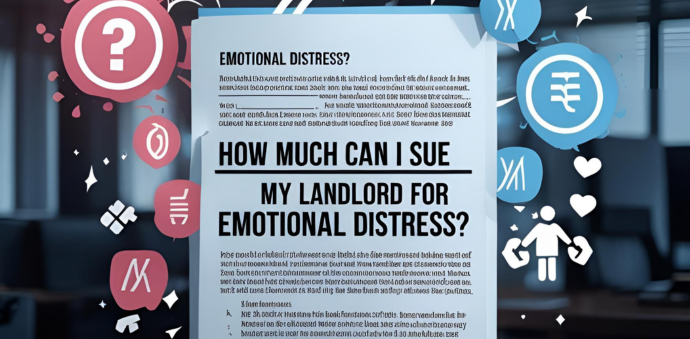
If you’ve endured landlord behavior that caused you significant emotional suffering, whether through harassment, neglect, wrongful eviction, or invasion of privacy, you might wonder, How much can I sue my landlord for emotional distress? The answer varies widely based on your situation, but it’s important to know your rights, what evidence you’ll need, and what to expect from the legal process. This post will help frustrated tenants understand the legal grounds for suing landlords for emotional distress, how damages are calculated, and why getting legal help is crucial.
Tenants can sue landlords if the landlord’s actions or negligence caused severe emotional harm. Common legal grounds include:
To succeed, you must prove your landlord’s behavior was intentional or negligent and that it directly caused you emotional distress, such as anxiety, depression, PTSD, or other serious conditions.
Courts require strong proof to award damages for emotional distress. Key evidence includes:
Without substantial evidence, emotional distress claims are difficult to win.
There’s no fixed limit on how much you can sue for, but compensation depends heavily on the severity of your distress and the strength of your evidence. For example, in places like California:
Other regions may have similar or different ranges, but these figures highlight how serious and well-documented cases tend to receive higher awards.
Emotional distress cases are complex and often contested. Without an experienced attorney, you risk inadequate compensation or dismissal due to insufficient evidence. If you believe your landlord’s conduct caused you emotional harm, contact us now. We offer free consultations to evaluate your case, help gather the necessary evidence, and guide you toward fair compensation and justice.
Emotional distress caused by a landlord is real and can deeply affect your quality of life. You deserve to hold negligent or abusive landlords accountable and recover damages for your suffering.
Don’t wait; reach out today for expert help. Whether you need advice on your rights, assistance filing a lawsuit, or support negotiating a settlement, we’re here to fight for you.